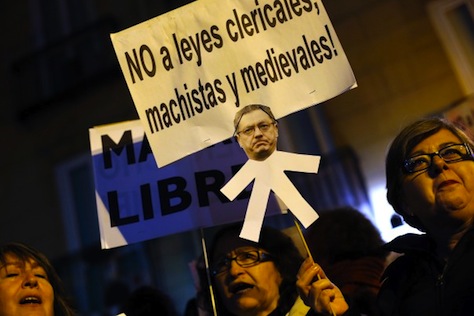For Poland, former prime minister Donald Tusk’s elevation to the presidency of the European Council wasn’t the end of a complex inter-institutional process so much as the launch of a new domestic political process.![]()
When former parliamentary speaker Ewa Kopacz, a Tusk loyalist and former health minister, succeeded Tusk as Poland’s second female prime minister on Monday, she did so with a reshuffled cabinet that she will hope to lead into the next Polish election, which must take place before October 2015.
For the time being, Kopacz (pictured above, left, with president Bronisław Komorowski) is expected to act as little more than a placeholder for Tusk, and the rap on her is that she won the job through her loyalty to Tusk, not through any innate political ability or policymaking chops. For now, she’s expected to do Tusk’s bidding, even as he and his team head for Brussels. It’s rumored that Komorowski disapproved of Kopacz’s elevation to the premiership, and there’s no shortage of figures within her own center-right Platforma Obywatelska (PO, Civic Platform) who would rather be prime minister instead.
But if she wins a mandate in her own right, Kopacz could gradually build her own political base and, as time passes, you can expect Kopacz to develop her own policy priorities separate from Tusk’s.
* * * * *
RELATED: Tusk, Mogherini appointed to top
European offices — what next?
RELATED: Who is Radek Sikorski?
* * * * *
Among the most surprising changes was the end of Radek Sikorski’s seven-year tenure as foreign minister. Sikorski, one of the most hawkish voices against Russian aggression, instead assume the job that Kopacz once held, the marshal of the Sejm, the lower house of the Polish parliament. Though the job doesn’t bring the same high-profile notoriety as the foreign ministry, it will given Sikorski more direct parliamentary and domestic political experience and it’s technically second only to the prime minister. That makes it more likely that Sikorski himself could become prime minister one day, especially if Kopacz fails to win a third consecutive term in government. Continue reading Kopacz puts imprint on Poland’s new government




